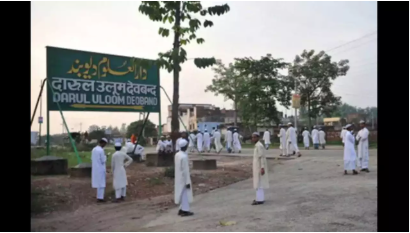India’s oldest Islamic seminary Darul Uloom Deoband on Wednesday opposed the proposed changes to the existing Waqf law during a meeting with the Parliamentary panel examining the bill.
Maulana Arshad Madani, the principal of Darul Uloom Deoband, appearing before the Joint Committee on the Waqf Amendment Bill, chaired by BJP member Jagdambika Pal, also made a strong pitch for effective implementation of the existing law.
Madani is learnt to have told the Committee that a law should not be changed merely on the pretext that it was not implemented effectively.
Parliamentary sources said it was the responsibility of the administrators to ensure effective implementation of laws.
The sources said that the seminary head supported parity in governance and administrative matters of all religious institutions.
“Darul Uloom Deoband came to today’s meeting. We called them because Darul Uloom Deoband is about 150 years old. We have taken their views, their suggestions regarding the proposed amendment bill. They have also given it in writing. The JPC will look into it,” Pal told reporters after the meeting.
Sources said Madani said the omission of sections 40, 104, 107, 108 and 108A of the existing law in the proposed amendment bill were against the interest of the Waqf.
Abul Qasim Nomani, the vice chancellor of the seminary, also appeared before the Committee.
Section 104 of the Waqf Act deals with properties given or donated by persons not professing Islam or support of certain Waqf, Section 107 states that the provisions of the Limitation Act-193 shall not apply to any suit for possession of immovable property in any Waqf.
Section 108 states that the Waqf Act will deem to be applied to any evacuee property in the country. Section 108A states that the Waqf Act will have an overriding effect if there are inconsistencies with any other laws.
Section 40 deals with the determination of any property as Waqf property.




